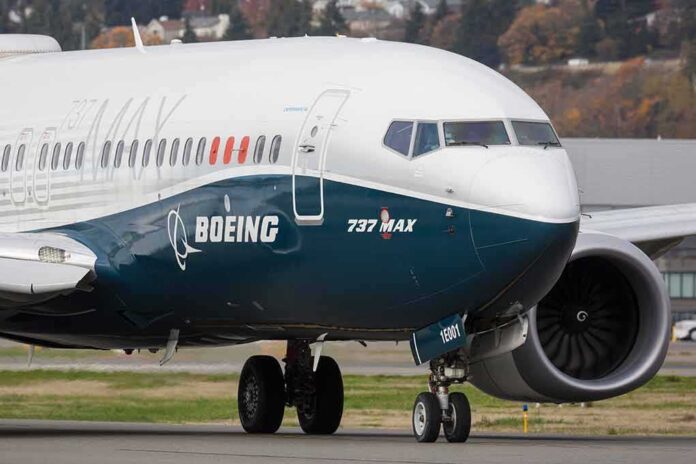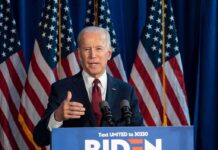
Boeing’s “best and final offer” to striking machinists fails to end the ongoing labor dispute as the International Association of Machinists and Aerospace Workers (IAMAW) rejects the proposal, citing inadequate pension and wage provisions.
At a Glance
- Boeing offered a 30% pay raise over four years, up from 25% in the initial proposal
- The union rejected the offer, demanding a 40% increase over three years
- Striking workers will lose company-provided health insurance at the end of the month
- The strike has halted production of several Boeing aircraft models, impacting cash flow
Boeing’s Final Offer Fails to Satisfy Union Demands
Boeing’s latest attempt to end the ongoing strike by offering a substantial pay hike and additional bonuses has been met with firm resistance from the International Association of Machinists and Aerospace Workers (IAMAW). The company’s “best and final offer” includes a 30% pay raise over four years, doubled ratification bonuses of $6,000, and upfront pay raises of 12% followed by three annual raises of 6% each. However, the union has deemed this proposal insufficient to address their core concerns.
The strike, which began on September 13, has already cost Boeing nearly $1 billion and is burning through $50 million to $100 million per day. The work stoppage has halted production of major commercial plane programs, including the 737 Max, 777, and 767, severely impacting the company’s operations and financial outlook.
Boeing said Monday it made a “best and final offer” to striking union machinists that includes bigger raises and larger bonuses than a proposed contract that was overwhelmingly rejected. https://t.co/QpEmtzcokC
— 21Alive News (@ABC21WPTA) September 24, 2024
Union Stands Firm on Demands
The IAMAW has criticized Boeing for publicizing the offer without first engaging in traditional negotiation channels with union representatives. Union President Brian Bryant acknowledged some improvements in the proposal but emphasized that critical areas still fall short of workers’ expectations.
“Boeing executives have always known they could do better, and this proposal shows that the workers were right all along. However, there are still critical areas where Boeing has missed the mark.” said Brian Bryant, President of IAM.
The union’s core concerns revolve around pension reinstatement and wage increases that adequately match the rising cost of living in the Pacific Northwest. Boeing’s decision not to reinstate the traditional pension plan remains a significant sticking point in negotiations.
Impact on Boeing and Its Workforce
As the strike continues, Boeing has implemented various cost-cutting measures, including temporary furloughs for non-unionized employees, a hiring freeze, executive pay cuts, and the elimination of non-essential travel and marketing expenses. The company has also announced that striking workers will lose their company-provided health insurance at the end of the month, adding urgency to the ongoing negotiations.
The aerospace giant had set a deadline of September 27 for the union to ratify the contract. However, union leaders have firmly stated that Boeing does not have the authority to dictate when or if a vote will take place. This standoff leaves both parties at an impasse, with significant implications for Boeing’s financial future and workforce relations.
Looking Ahead
As the strike enters its third week, the economic pressure on both Boeing and its workers continues to mount. The company’s offer would increase the average annual pay for machinists from $75,608 to $111,155 by the end of the four-year deal. However, the union maintains that this increase does not sufficiently address the long-term financial security concerns of its members, particularly regarding pension benefits.
With Boeing’s production lines at a standstill and the union unwilling to compromise on its core demands, the path to resolution remains unclear. The outcome of this labor dispute will likely have far-reaching consequences for the aerospace industry and could set a precedent for future negotiations between major corporations and their unionized workforces.
































